Cancel Culture
Is there really a conspiracy?
What is “Cancel Culture”?
The above definition of cancel culture raises an obvious question: Who decides what is objectionable or offensive? Moreover, it tells us that the goal of cancel culture is to encourage conformity. Cancel culture draws from the idea of political correctness, but it is far more staunch since it incorporates two new concepts: wokeness and virtue-signalling. These can be defined as follows:
Wokeness: to agree with the viewpoint that the world is completely racially and socially unjust and that the only solution is a complete overhaul.
Virtue-signalling: to affirm the woke perspective and to speak out against all other perspectives.
The signalling of virtue is key here because it attempts to force wokeness. For, it is not enough for one to simply be woke, but to also correct a lack of wokeness in others. In this regard, virtue-signalling can go beyond withdrawing support; it may even be expressed through aggressive behaviour. An insistence towards woke ideology has led to attacks on culture, politics, religion, and other institutions, particularly in western nations.
‘Woke’ ideology says that all the old systems need to be torn down and rebuilt from scratch; countless historical monuments have been removed, vandalized or even toppled.
Canada Post Corporation decided to commemorate woke ideology on a postage stamp. Odd, don’t you think? They later apologized.
In our personal lives, too, woke ideology has become a major theme. Expressing the ‘wrong’ opinion in social settings (including online platforms) can result in one being cancelled. In fact, mainstream media seems eager to encourage such practice.
Forbes magazine suggests cancelling your friends if they don’t agree with the ‘approved’ perspective on a topic.
Is ‘cancel culture’ grassroots or top-down?
Is the notion to cancel really part of a culture? I’m dubious. Culture starts at the grassroots and evolves based on changing tastes, values, and morals. But, is the cancelling phenomenon that we see happening all around the world really coming from a grassroots level?
Indeed, the concepts of grassroots and cancel culture are diametrically opposed: grassroots movements value independent views; cancel culture insists that viewpoints conform. The recent and pervasive push towards cancelling strikes me as very suspicious, as though it is being forced. If that is the case, then what might be driving it?
Cancel Culture in the Media
Celebrities, scientists, podcasters and other well-knowns who speak their minds are often targets of cancel culture. For example, when longtime NHL sports commentator Don Cherry refused to apologize for his comments regarding immigrants not wearing a poppy to honour Canada’s fallen soldiers, he was fired from his position.
But, was he really fired because of what he said?
The incident was highly publicized such that most every Canadian was aware of it. I can’t help but wonder if the real reason for Don Cherry’s firing was to send a message to other Canadians that fail to comply?
Was Don Cherry really fired for what he said? Or was his firing simply a high-profile warning to every other Canadian about espousing opinions?
As mentioned, celebrities are not the only targets of cancel culture; make no mistake about it, virtually anyone or even anything can be cancelled.
According to Canada’s state broadcaster, some songs warrant cancellation because they contain ‘unacceptable’ messages. Above: the song “Baby, It’s Cold Outside'“ is said to elicit ‘toxic masculinity.’
Mainstream media that see fit to cancel music are also telling us to cancel our loved ones. In fact, over the last three years, we have witnessed unprecedented cancelling of loved ones, friends, music, words, phrases, gestures, books, social interactions, and even ideas.
Covid-19 arrived just as cancel culture was in full swing. Coincidence?
Are fears about Covid being exploited to cancel freedoms?
Opinions that are not state-sanctioned are unwelcome within the halls of Canada’s parliament buildings.
The ‘OK’ hand gesture has been deemed a hate symbol, internationally.
But, is it really? Or are we simply being groomed to accept censorship?
CNN regurgitates what PETA (an animal rights organization!) has to say about acceptable language. Who cares what they think and why is this a national news story?
Dr. Seuss books are racist! Which books should we burn next?
Children playing in the yard: Are they suggesting this be cancelled, too?
(Why else did an ‘anonymous’ letter become a national news story?)
Dodgeball is bullying? What will they cancel next?
Boxing? Wrestling? Football? …Playing tag?
Clapping and cheering? Also cancelled!
I’m starting to see a pattern.
Seniors pickleball too noisy? Cancel it!
(Another national news story… another ‘anonymous’ complaint, perhaps?)
Friendly banter? Cancelled!
Are we being trained to not speak to one another?
Is the goal to eliminate face-to-face contact altogether?
Maybe we should just do everything online…
Cancel Culture: It’s Even Easier Online
As our social interactions are more and more being forced online, it gets easier and easier to monitor and control what we say. And efforts are underway to do just that!
Is this really for our own good? Are we not social creatures?
And, just in case the fear of being cancelled doesn’t shut you the hell up, the huge fines surely will! Be careful what you Like on Facebook!
IS SELF-CENSORING THE GOAL OF CANCEL CULTURE?
The spectre of being cancelled has become a real concern for people. There is much to fear: fear of losing your job; fear of being ostracized by family and friends; fear of being attacked on social media. It’s all about the fear.
Is this really for the betterment of society? Fear of sharing our true thoughts will mean many valid viewpoints won’t get heard. But, maybe that’s the whole point of cancel culture.
Covid and Canceling:
Wherever you stand on the effectiveness of masks in stopping Covid, you have to admit: they sure are an awesome symbol of self-censorship, aren’t they?
What can we do, together, to fight cancel culture?
If you willingly participating in cancel culture out of fear, you’re not alone. But know there are things you can do to reassert your freedoms:
Speak up for what you believe in (especially with friends and loved ones);
Speak out, respectfully, on social media; don’t alienate people;
Don’t be fearful of free and open conversations (you’ll be surprised at how many people feel exactly as you do!);
Recognize what is going on and share what you learn with others
If you don’t (or won’t) see through cancel culture because it offers a brief sense of moral superiority, please consider the long-term costs to freedom. And ask yourself this: Who really runs the ‘cancel culture’ show?
Do you believe cancel culture is really just top-down coercion led by media giants?
Please tell me your thoughts in the comments section!
Thank you for reading the Opportunity Mocks newsletter! My next article will be in the form of a video. It will be fun! Thanks for reading. Please SUBSCRIBE to receive all my latest articles! Also, please COMMENT, as I would love to hear your thoughts!








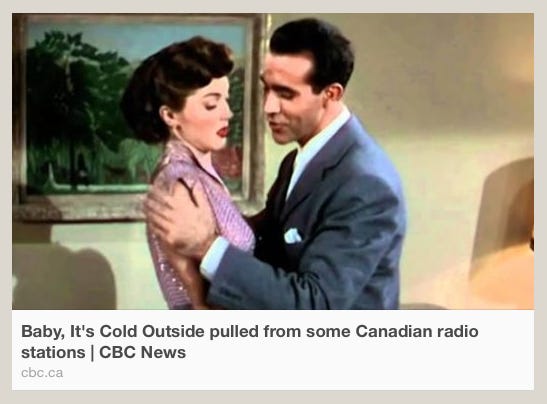






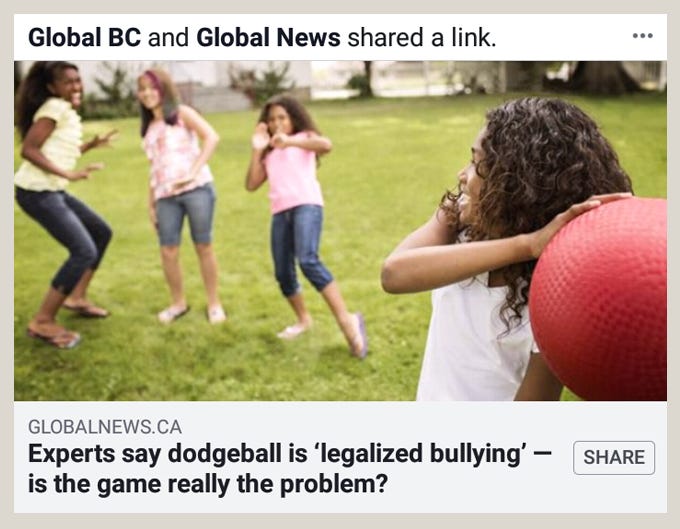

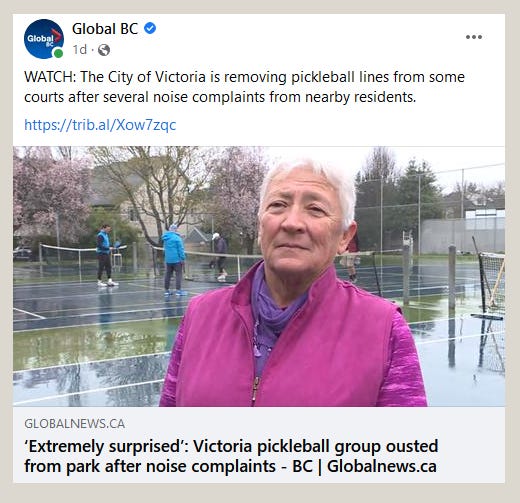

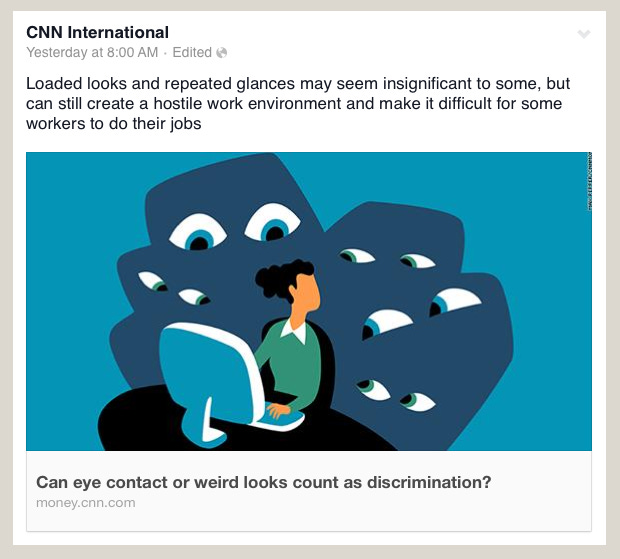
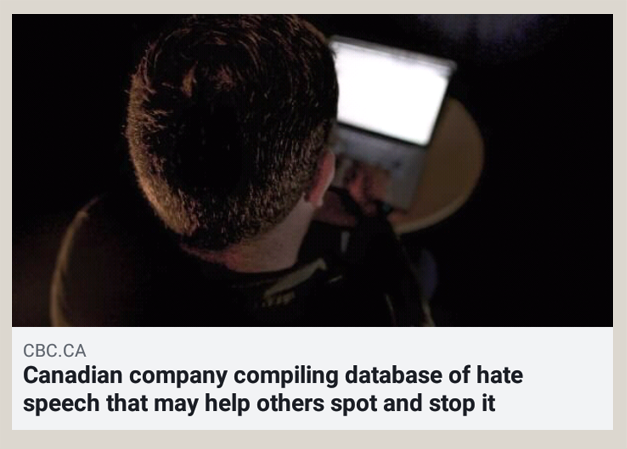


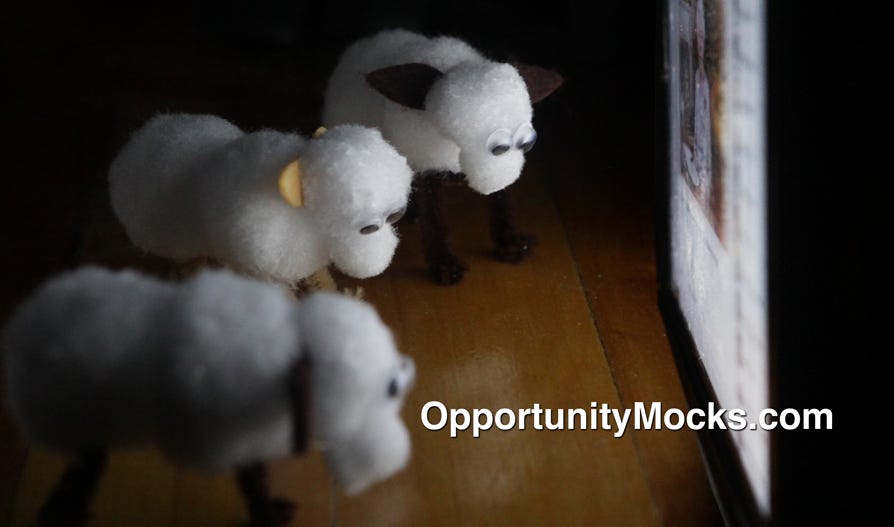

Do people really not see it? Or have they turned a blind eye because it is too outrageous to contemplate? I know parents are having a super hard time. How can they manage to keep their children safe?
Two years of isolation, masking, no contact with relatives/friends and a dumbing down of the intellect is a crime against children. Not to mention growing up around people who are living in a deep fear state...
This is so good its going right on to my Facebook. Very well written. Thanks Josh.